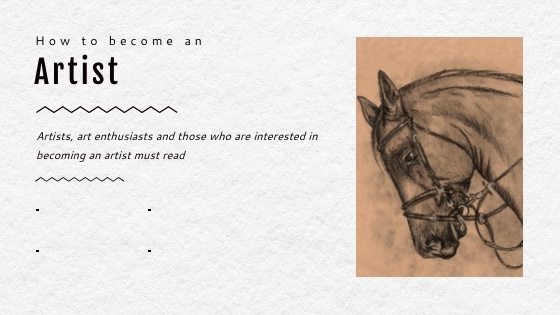First Time Doing Panto.The comedian David O’Doherty has a joke: “Life is a marathon, not sprint… but it’s the kind of marathon you have to sprint.” Swap the word “Life” with the word “Panto” and you have a decent idea of what many actors get up to at Christmas time. Now imagine doing this ‘sprintathon’ while wearing high heels, a pair of sequin lederhosen and a hat that weighs the same as a small child and you’ll have an even better idea. Whether it’s a small town production or a large star-studded extravaganza, here are a few tips for people popping their Panto cherry this year:
Rehearsal periods are short
Pantos are often rehearsed on a very tight schedule. You’ll likely get between two and three weeks to rehearse a two and a half hour show. This means that the whole cast and creative team will be in a sink or swim situation from the start. The schedule won’t give you enough time to sink, so slap your goggles on and start paddling. Some discerning actors may like to point out problems during the rehearsal period like; “The costume is ridiculous and uncomfortable.” or “My character seems very one dimensional” and even “The story doesn’t really make sense.” These are all real problems and should not be ignored, and we’d love to have an hour-long discussion about why the baddie is actually just a misunderstood goodie, but the clock is ticking.First Time Doing Panto
Add detail and colour to your own character, don’t wait for specific direction – if a choice doesn’t fit, you’ll be redirected anyway. Make sense of the ridiculous story for yourself and then filter that ‘logic’ into the performance. Rather than complaining about a problem to any department, come to them with specific solutions, “Would it be possible to adjust this part of my makeup/costume/dance routine?” You may eventually need to suck it up and get on with it regardless, but offering a clear solution is much better than simply pointing out a problem. Rehearsal time will be tight, people will be stressed but a positive attitude when facing problems will make for a much more enjoyable process. First Time Doing Panto.In the end you can always just say “Ah well, it’s just a Panto,” though you shouldn’t because…
It’s hugely important for communities
What you may not know is that a sold out season of Panto can generate most of a venue’s revenue for the WHOLE YEAR! And without this revenue the theatre couldn’t fund their own productions or their outreach programmes or pay their staff. So y’know… no pressure or anything. That being said, the importance of Panto goes far beyond the financial aspect. It’s not just a staple on the theatrical calendar, it’s a Christmas tradition enjoyed by generations of families.First Time Doing Panto
Panto is also very often a child’s first exposure to theatre, which for all of us is such a special experience. Each new audience will probably have young kids in it who’ve never seen a play before and in a few decades that child could be back, with their own kids, booing the bad guys, cheering on the good guys and singing along to the smash hits of the day.
Something else that might shock the first time Panto performer is just how ready the audience are for interaction and that’s because they’ve seen it all before. Pantos usually follow a series of set patterns, routines and rules, and in this way an audience knows exactly what’s in store. It’s like a set of familiar Christmas decorations that get unpacked every year.First Time Doing Panto. The decorations are the same, though they’re never hung on the tree in quite the same way. You may not be too keen on playing stock characters or rehashing terrible dad jokes but in order to perform Panto well….
You have to embrace the form
Some classical actors and cutting-edge artistes like to look down their noses at Panto, but if you’re a first timer then you are in for a very intense learning experience. After all (begins a lecture on Theatre History), Pantomime has its roots in Opera and Commedia Dell’Arte. It also has a lot in common with musical theatre and classical dramas, but with everything turned up to eleven. The slapstick routines should be clear and sharp. The terrible gags and puns need to come thick and fast and land their setups and punchlines cleanly. Innuendos and edgy jokes need to be crude enough to be slightly shocking and funny, but not so filthy that they cause offence or disgust. The characters, while being seemingly one-dimensional (Hero, Villain, Good Fairy etc), must be clear and well defined without being just, ‘stereotypical’.
Panto’s performance style has powerful and definite conventions that make it different to other styles of theatre. There’s also plenty of room to play about within it, but you need to embrace and enjoy the form. It’s a game where the audience know the outcome and enjoy playing along. If the game onstage is played well and the performances are tight, clear and energised then Panto can be absolutely glorious. The show may seem simple and easy to handle, especially if you’re watching a great performer. However, like with any other show, laziness and sloppiness will isolate an audience and the whole thing could fall apart. Which is where often you rely on supporting…
THE DAME… there’s nothing like them
Every Panto has a star character and they are… (drum roll) the créme-de-la-créme, the cherry on top, the delightful, the frightful and oh-so-exciteful, man in a dress who causes the mess, with an introduction so long it cannot be wrong, the biggest, the brightest, the best… THE DAAAAAME!
Entering the stage like a whirlwind of energy and glitter, the role of ‘The Dame’ epitomises panto; big, bold, brash and colourful. Part-diva, part-standup, part-joker, part-fool, the Dame is the strongest link between the audience and the actors onstage. They initiate, most (if not all) of the physical audience interaction eg: inviting kids up onstage, going into the audience with water pistols, etc. Also, just in case you weren’t aware, the Dame is always a man in drag and, for various venues, is often played by the same actor for many years. In this way the Dame becomes a well known face to the audience.
I once saw a poster which included short biogs of the actors beneath their picture. The Dame’s biog simply said “Sheffield Legend”. That’s not something most actors have on their CV and it’s not a reputation you can build overnight! Unfortunately, this means that not all of us will have the chance to play this much sought after role, and good luck to anyone who tries to upstage or pull focus from a Dame. They will almost always have a sidekick – the ‘Fool’ character like ‘Idle Jack’ or ‘Buttons’. This comedy duo will handle most of the slapstick routines. A warning to anyone who is playing a ‘Fool’ character: sometimes the show will require the Dame to deliberately make life harder for you. You will become the hapless victim of scripted pranks, deliberate ‘mistakes’ or just being spontaneously funny. This is all part of the show. I would advise all actors when in scenes with Dame to be on the ball. A good Dame has the grace of a ballerina, the lightning wit of Robin Williams and more bizarre costume changes than Lady Gaga, so you’ll need to keep up. On the subject of keeping up…
Learn to deal with an audience
Dealing with a Panto audience is a real trial by fire and it can be tough figuring it out. First of all, think about audience interaction as if it’s a game of call and response, “Oh no it’s not!”, “Oh, yes it is!”, “Oh, not it’s not!” “OH, YES IT IS!” etc. There are a few little techniques I’ve found useful. First of all, be super clear and big with any signals that tell the audience what to do – save your subtlety for Pinter. Without getting too technical or academic about it, I’d advise anyone struggling to get an audience on-side to try gauging an audience’s reaction along the lines of ENERGY and FOCUS. If you have any teaching or workshop facilitation experience it might come in handy here. Sometimes, you might put the ‘call’ out, hear their ‘response’, and notice that they have loads of energy but very little focus, or perhaps they have no energy at all or maybe there’s just a wall of indistinct noise coming back at you. Adjust the pace, tone and volume of your ‘calls’, to test either the audience’s ENERGY or FOCUS and get them onto whatever level you want. Mixing up your ad-libbed reactions eg: “Oh, you can be louder than that.” or “That was nice and loud, but not fast enough” can playfully challenge your audience and keep you active and engaged as well.
As a rule, try to always keep your audience interactions playful and light. They’ll know what’s expected of them and more often than not will be happy to follow your gestural instructions. Interacting with an audience is something you only learn by doing, and chances are you’ll find your own way of dealing with them and there will be days where you’re exhausted and feel yourself lacking energy and focus, which is why you must…
Look after yourself
I’m going to return to my sprintathon metaphor here: You may be doing 12+ shows a week. There may be three show days. You may, at times be busting your gut trying to liven up a crowd, when all you want to do is cuddle up in bed. You’ve got to push through, stay alert and keep moving. To do that, you need to look after yourself. Eat well. Even if you’re away from home, living in digs, try to plan your meals, because sometimes your day will be so full and your makeup so thick that you might not be able to run out for snacks or a take-away.
Sleep when you can. At night, on mornings off, between shows on the floor of a dressing room. Get rest wherever it’s available, because a build-up of exhaustion is never a good idea. Christmas drinks and nights out are inevitable, but know your limits and remember that long screaming conversations in loud clubs will damage your voice. Also, as it will be winter, colds and flus are always a potential danger. Get your flu jabs if you can – sometimes a production might even arrange for the company to get their jabs done. Lemon, ginger, honey and tea are your friends, always keep them close by, as those three show days can test your voice to its limit. And while you’re looking after yourself…
Remember: it’s your Christmas too
If you can get home to see family, or get family up to see you, that’s great. However, sometimes this is just not possible and being alone at Christmas time can be hard. If there are any other cast or crew members stranded with you, host some dinner and drinks in your digs or organise a meal somewhere local. That way you will all have some company on Christmas day and you can all eat, drink and be merry together. Because it won’t be long before the costume goes back on, the music strikes up, the curtain rises and you’re back onstage playing a belter and bringing joy to thousands of kids at Christmas.
So prepare yourself for the sprintathon that is Panto… it can be tough and exhausting but with the right attitude and mindset it can also be so, so satisfying and worthwhile.
“Oh no it can’t…”
“Oh yes it can!”


